The Fiachra Farm Calligraphy Series
when Jade & I fed the scribes the farm (thanks, Meech, for such succinct phrasing)
I spent December 2024 feeding lunch to calligraphy students.
The process of making those lunches began almost a year ago.
Jade and I planted seeds on two plots of land in Milwaukie, Oregon. We called the project Fiachra Farm. We began with greenhouses and plastic and heating pads and popsicle sticks and newsprint and vermiculite and truck bed loads of compost under the waxing imbolc sun. Imbolc is celebrated on February 1st and is considered the first day of spring in the Gaelic tradition. It is right around this time that the sun’s height in the sky is just lofty enough to invite the plants to begin growing again. Crocuses, blue bells, little seedlings in greenhouses. February 1st, 2025 is now less than a month away.
Days were spent seeding. They were spent weeding, bed prepping, moving soil around, building the farm. Building trellis. Being cold and then being warm inside for lunch, where we began making lunches for each other.
We hosted a plant sale.
We planted seedlings in the ground. We fertilized. We kept weeding. Things grew. We brought our harvest to the farmer’s market.
The fields overflowed. There were ruddy seas of flowers and of hands arranging them.
Autumn came and after the garlic planting and final harvests, growth in the garden began to slow. Jade saved seeds and brought in the winter squashes, the storage tomatoes, the potatoes. Radicchios were left out in the field to head up and harvest later on.
This isn’t meant to be a story of the first year of our farm, though I do hope to write that in time. The point here is to provide some context around what it took for us to bring lunch to 12 students once a week in the month of December. We did not serve food only from our farm (except for the last class wherein we made gnocchi from our potatoes with sauce from our tomatoes, and chicory salad), but we served some and that felt like a feat.
Our classroom came to life inside Gracie’s Apizza, my place of work when I wasn’t on the farm this year. Craig, the owner, graciously invited us to host the class inside the space. Matt & Zena of Starter Bread next door also made us a generous offering of bread and pretzels each week. I brought pickles and preserves I had made throughout the year from our surplus crops, Jade brought radicchios freshly harvested from the field and eggs from her chickens. She also brought, of course, her mobile calligraphy classroom: a library of calligraphy books from scribes in her lineage, pens, ink, a projector screen, coffee mugs, some of the tea we had grown, dried, and blended together. The classroom props were a patchwork of the lineage we had created together throughout the growing season and the lineages we hail from respectively as cook & calligrapher. The resulting offering was dynamic and made even more so by the presence of a central wood fired hearth.
If you know farmers, you understand their annual life cycle. Spring, summer, and fall are all spent working very hard. Too hard. Days are long and hot in the field. Harvest totes weighing over 60 pounds are lugged across sticky soil while wearing heavy boots. Weird issues with things like irrigation, disease, and greenhouse plastic come up at the worst times. Meanwhile, the constant and growing intervention of disruptive weather patterns looms constantly on the horizon. Farming, and organic farming especially, is an almost impossible task. Thankfully, winter always comes and with it time for rest. What do farmers do in winter?
I know of a few who have been known to make ceramics. Some travel. Some stay home, sleep, and do the fucking bookkeeping. So much of it isn’t glamorous. In the past as a farm hand, I have tried to use winters to write more, but it’s only this year that my practice is coming back to life. The Fiachra farmers were lucky enough to teach calligraphy and to make lunch this winter, and now I am lucky enough to spend a little time reflecting and writing about it.
It wasn’t until this series was over that I realized its nature as punctuation to our year on the farm. Quite literal punctuation. We arrived to the restaurant in the mornings, lit the fire, set up the classroom. Jade arranged her teaching desk and studies while I prepared lunch. The preparation was never very daunting; our budget for ingredients was not extravagant so the menus were humble. 12 people is not many to feed. There was always a moment, as the students began taking their seats, when I would sit down and take a breath. Watching them practice their letters. Watching Jade’s slow, elegant strokes keeping time on the projector screen. Punctuating a new time, a slower one. Setting the pace for winter with a stroke of her pen.
A period brings a sentence to a close. A sentence isn’t a sentence without one. This calligraphy class brought our season to a close and defined it. I hadn’t known we were working towards it; the plan to host the class came together once the farmer’s market ended and we had more time to think. Yet we had been working towards something all year. We had been working towards having food to share, we had been working towards slowing down, we had been working towards being warm and inside together.
The year, to me, was one long sentence filled with words that had meanings only in the context of one other. Words belong to each other, as Virginia Woolf said. (shout out to Harper Quinn for making a publication surrounding this beautiful quote and introducing me to it.) The words were the moments spent on the farm, the beds we made, the trenches we dug, the confusing moments spent at Home Depot staring at plumbing pieces for irrigation. The words were the herbs and the flowers and the melons. The words were the days and how the sun shone on them and how the water came to the plants. The words were the food we could feed each other because we grew it. The words were literal words, penned by new scribes, fueled by the farm.
I believe that lunch should be eaten in context, that any meal should. I have never felt more fulfilled cooking for a crowd of people than I did when making lunch for scribes. They entered the classroom wanting to learn. They were grateful to be nourished throughout that process. The food was a support beam to their learning, not some sculpture floating at the center of the room. Of course I did my best to make it beautiful because I think food should be as delicious to the eyes as it is to the palate. This is not because I want it to stand under a spotlight. It’s because I want it to be understood. In the same way that Jade cares for beauty and precision in her letters, I care for elegance and directness in food. The presentation should be clear enough to see through, to understand the origin of what’s behind it.
To understand food’s lineage.
After the series was complete, Jade and I shared a phone call. We debriefed the class, the year, our time together. We talked about lineage and about being conduits. We talked about teaching students and teaching each other. It requires practiced skill and hard work to let an old tradition speak through you. There will be moments along the way of thinking you’re good at something before you are — or of thinking you’ve done a bad job when really you’re beginning to understand. The work is often overshadowed by the clouds of ego. Yet there are days when the sun shines and you forget yourself and you have a chance to make an offering. This offering is older than you and is yours only insofar as it is yours to give.
As a chef, I feel that my work is at its best when it isn’t mine at all but is rather the result of generations of toil and discovery. I like to feel my hands disappearing into the sea of the hands, sea of flowers, which usher everything I know into being.
Thank you to all of the cooks & chefs who have taught me what I know, to those who taught them, to the farmers and to the land for putting something in our hands to begin with.

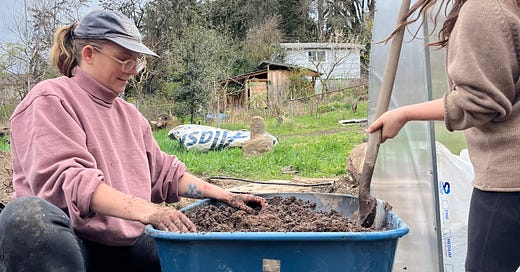



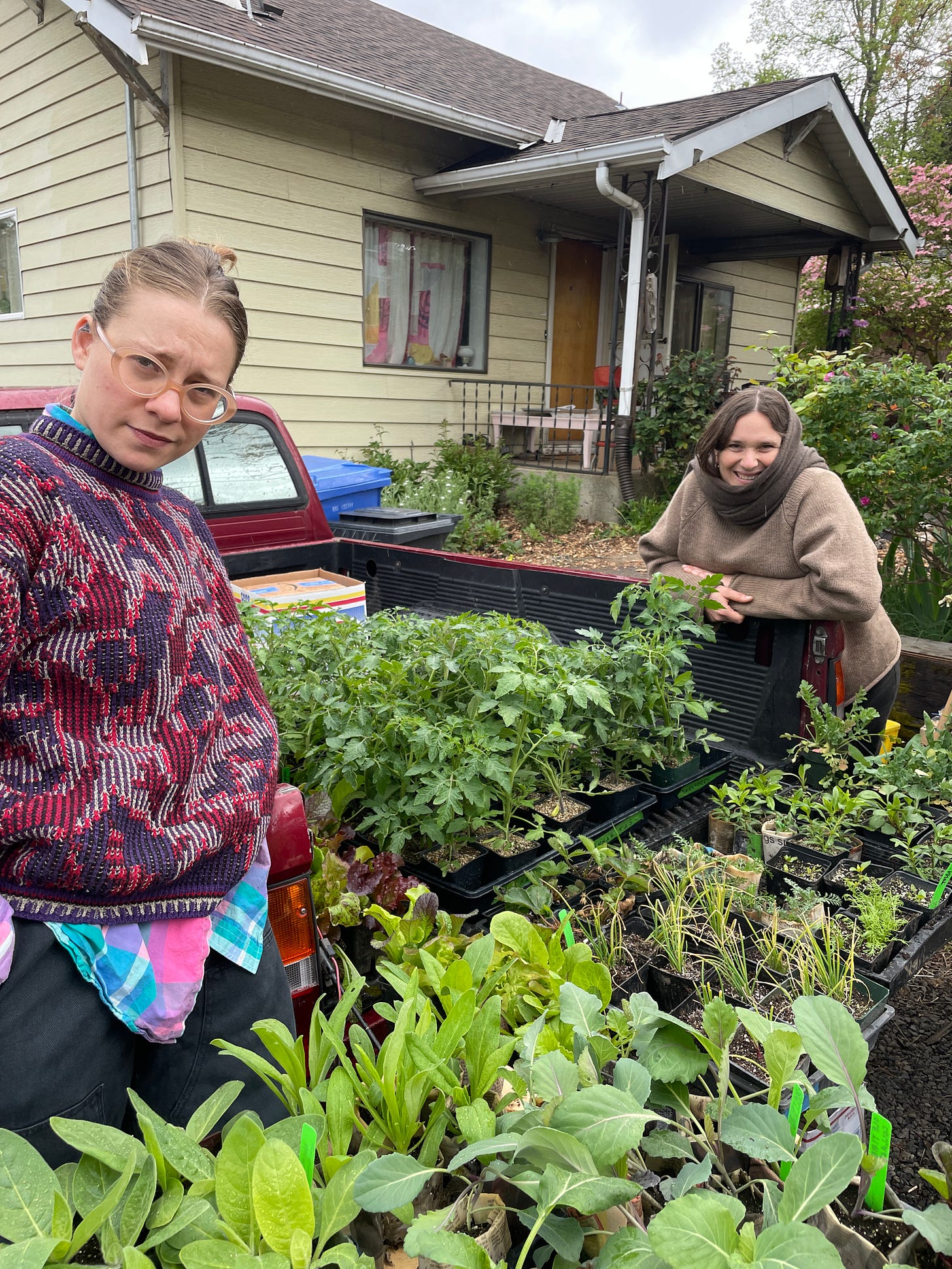
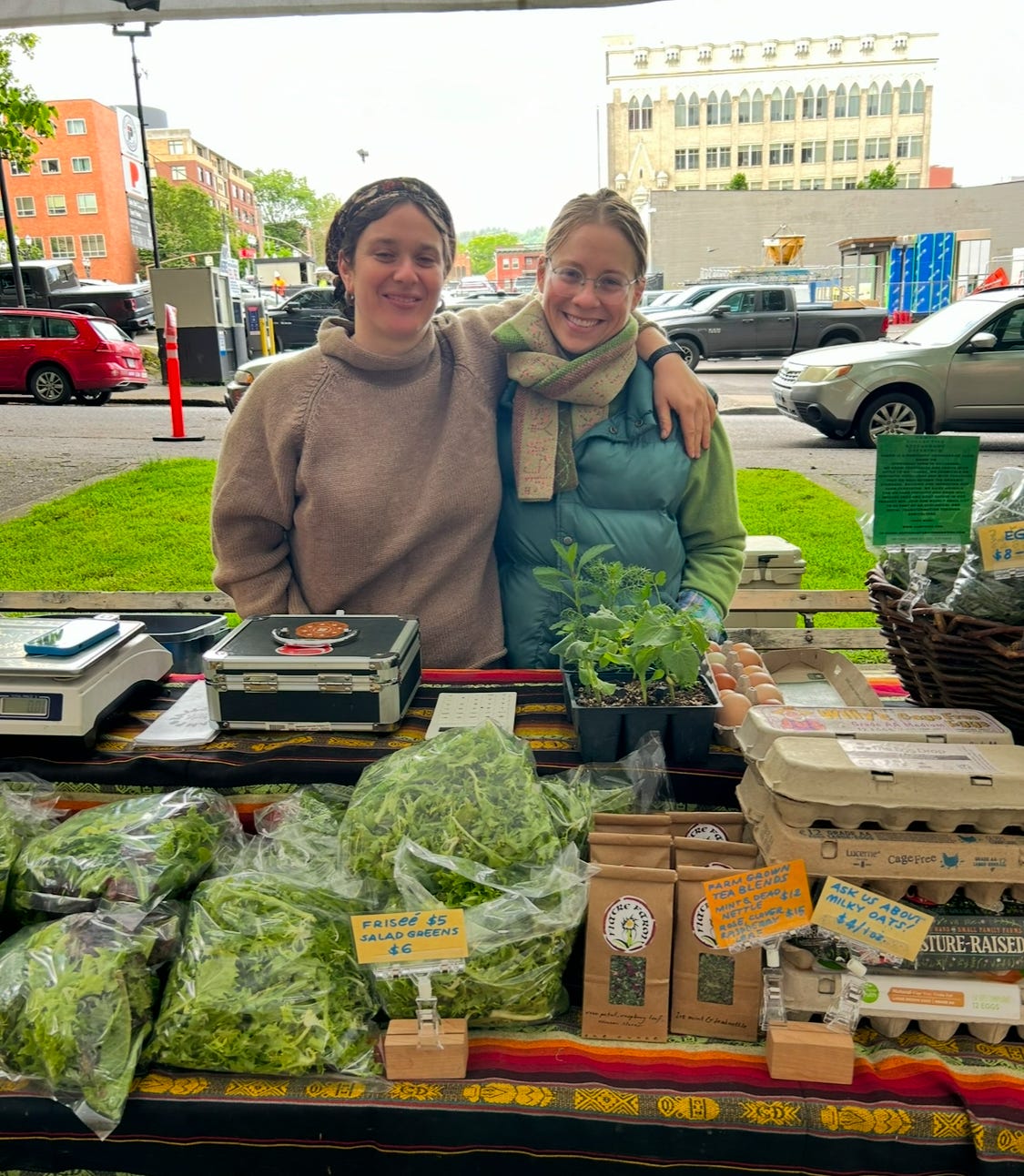
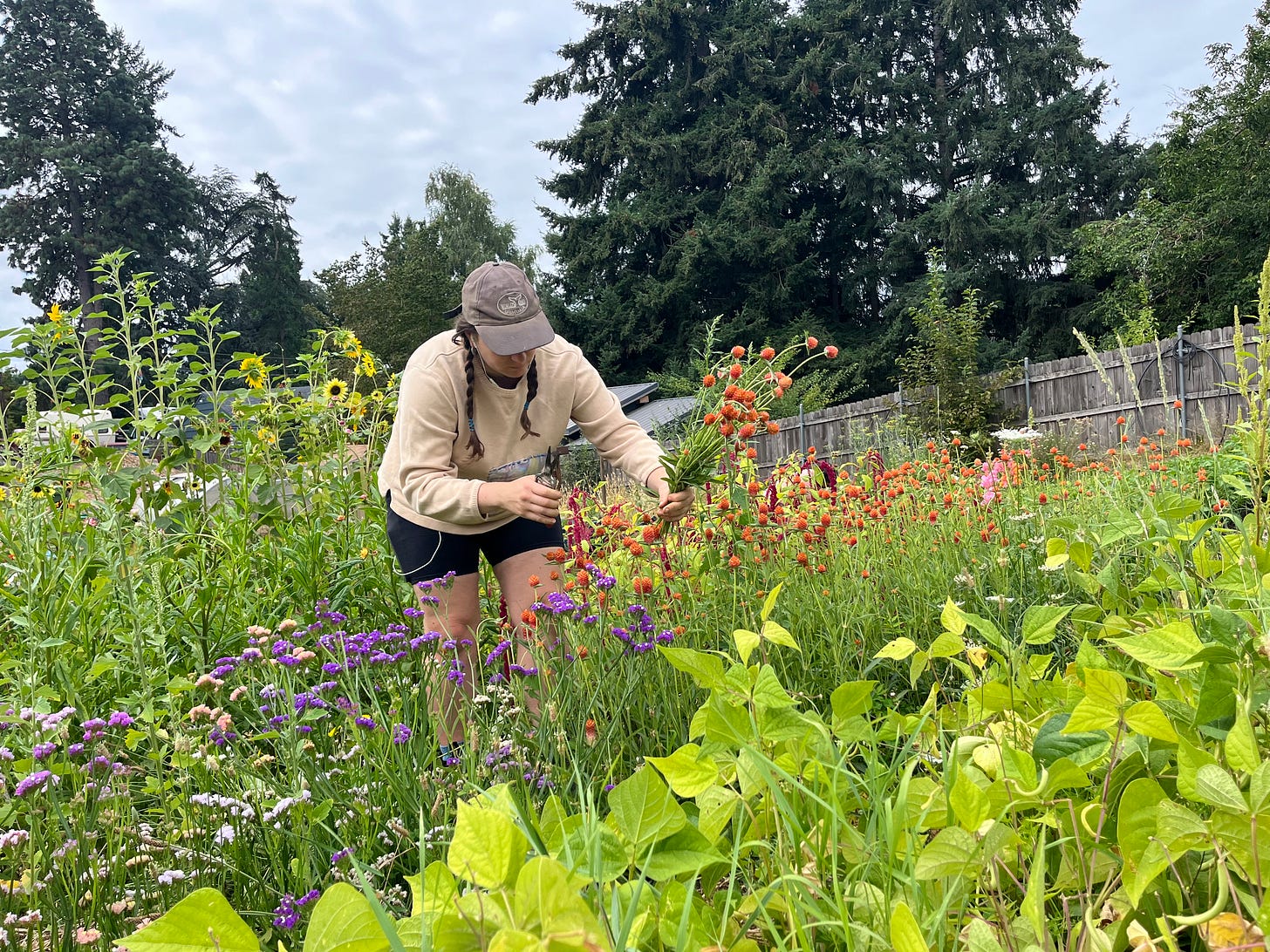
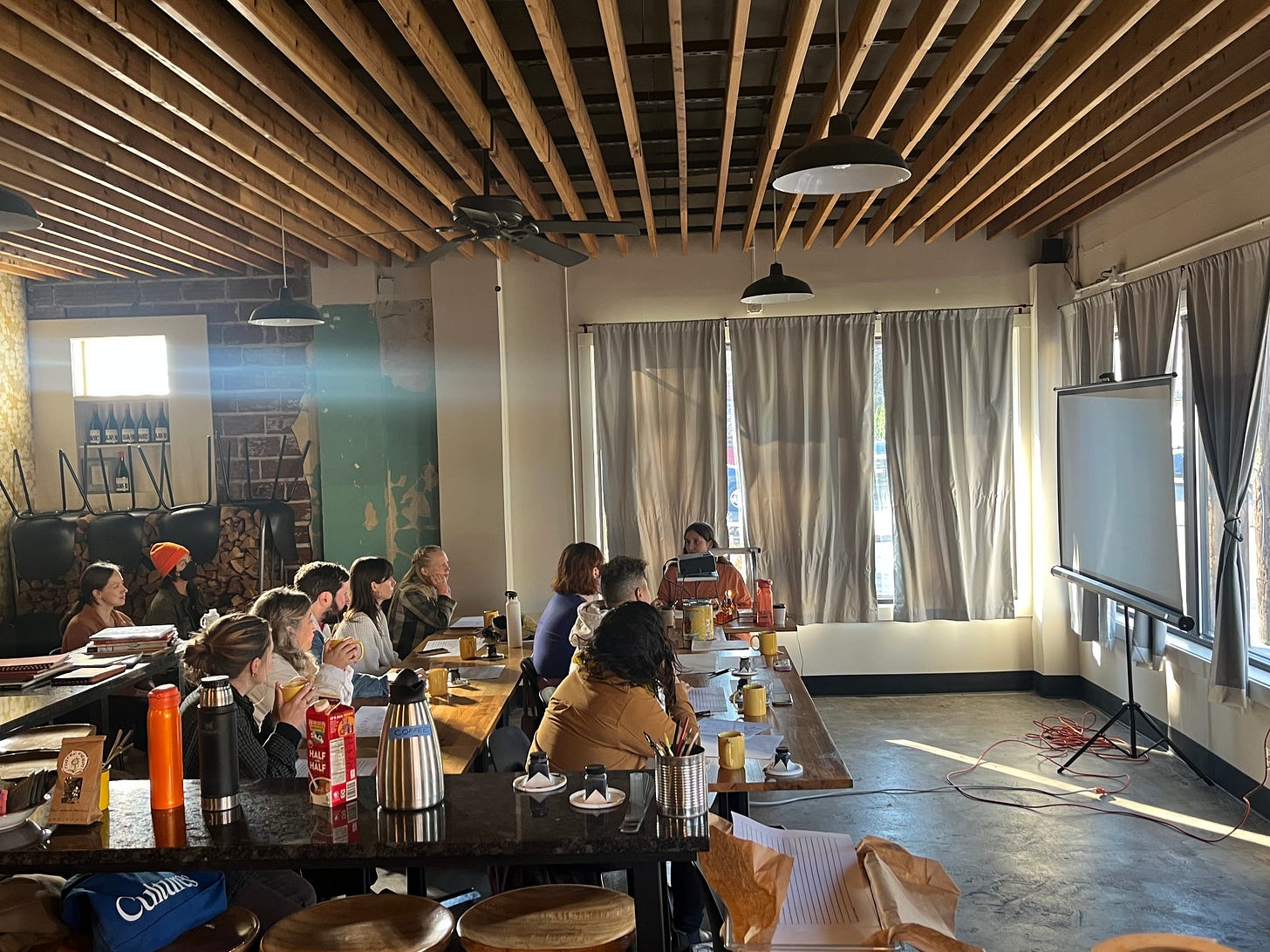
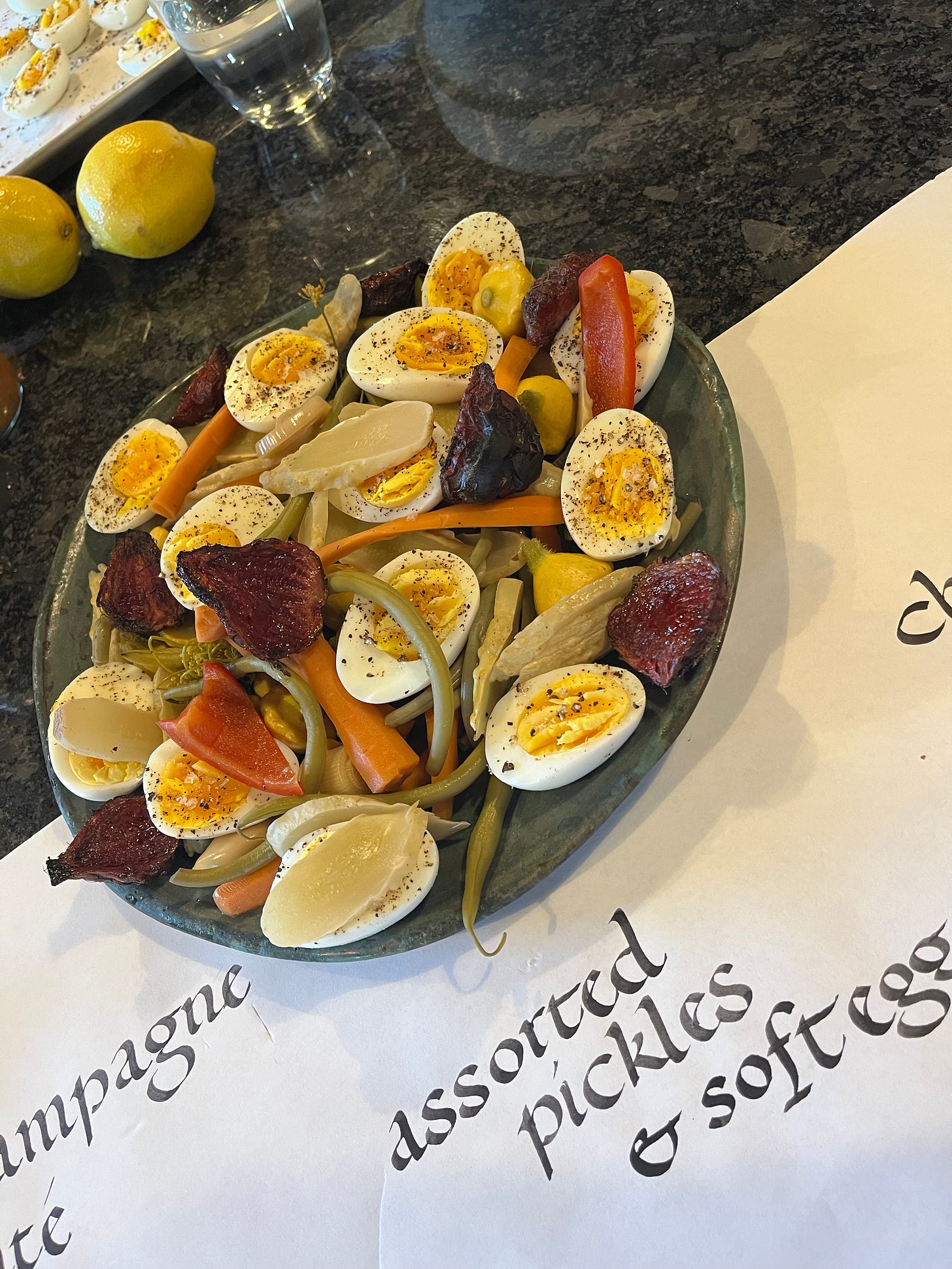
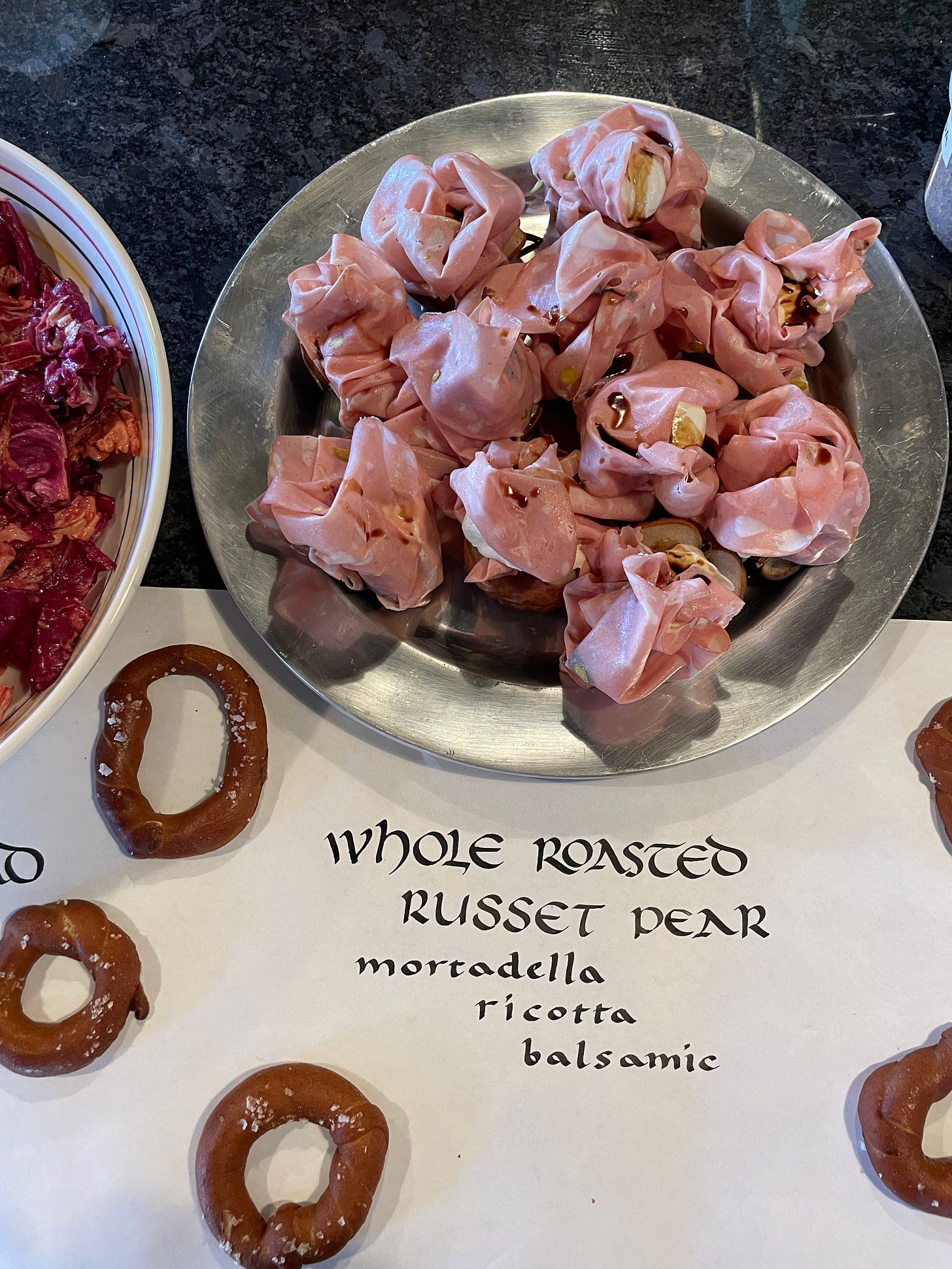
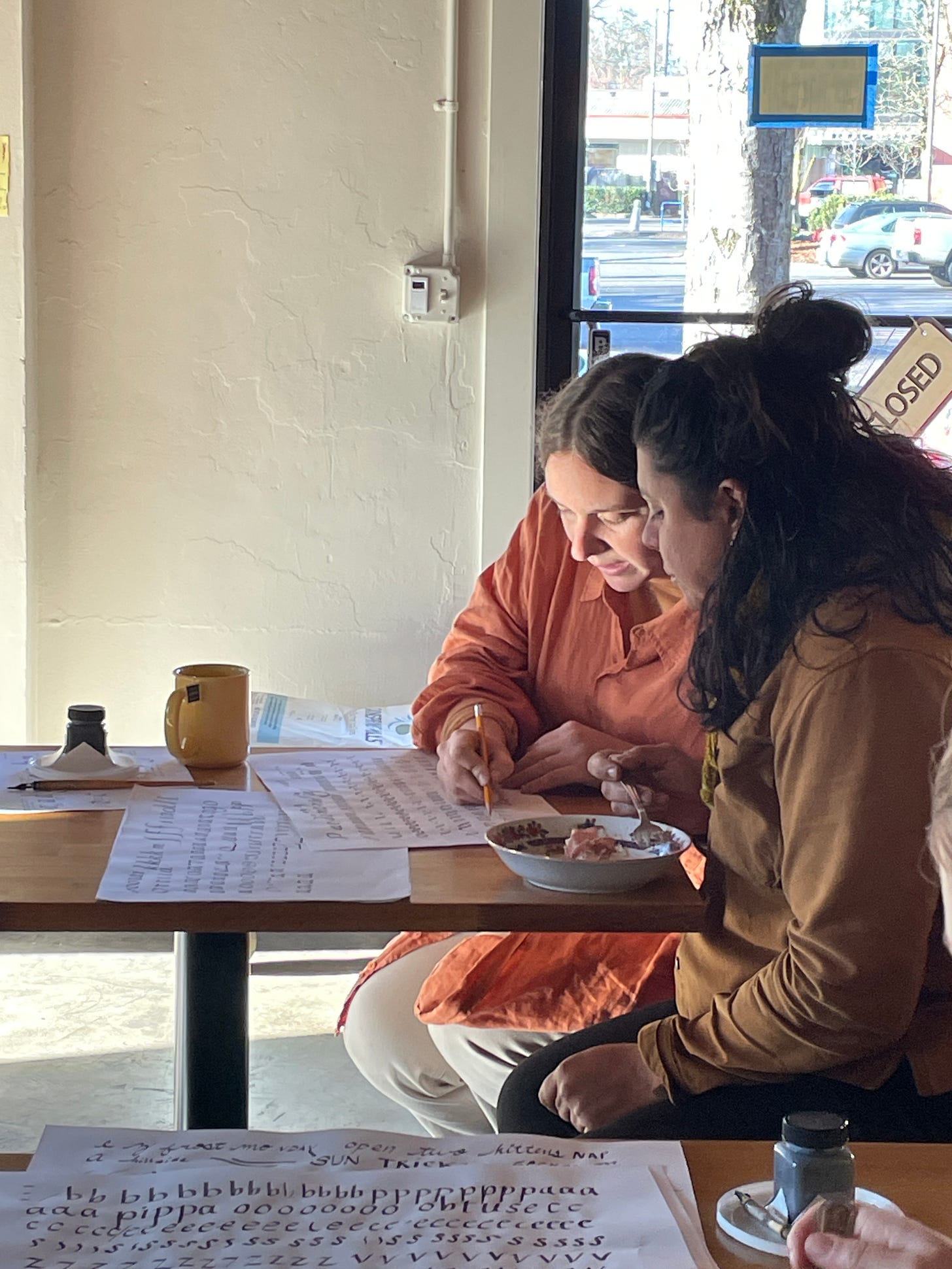
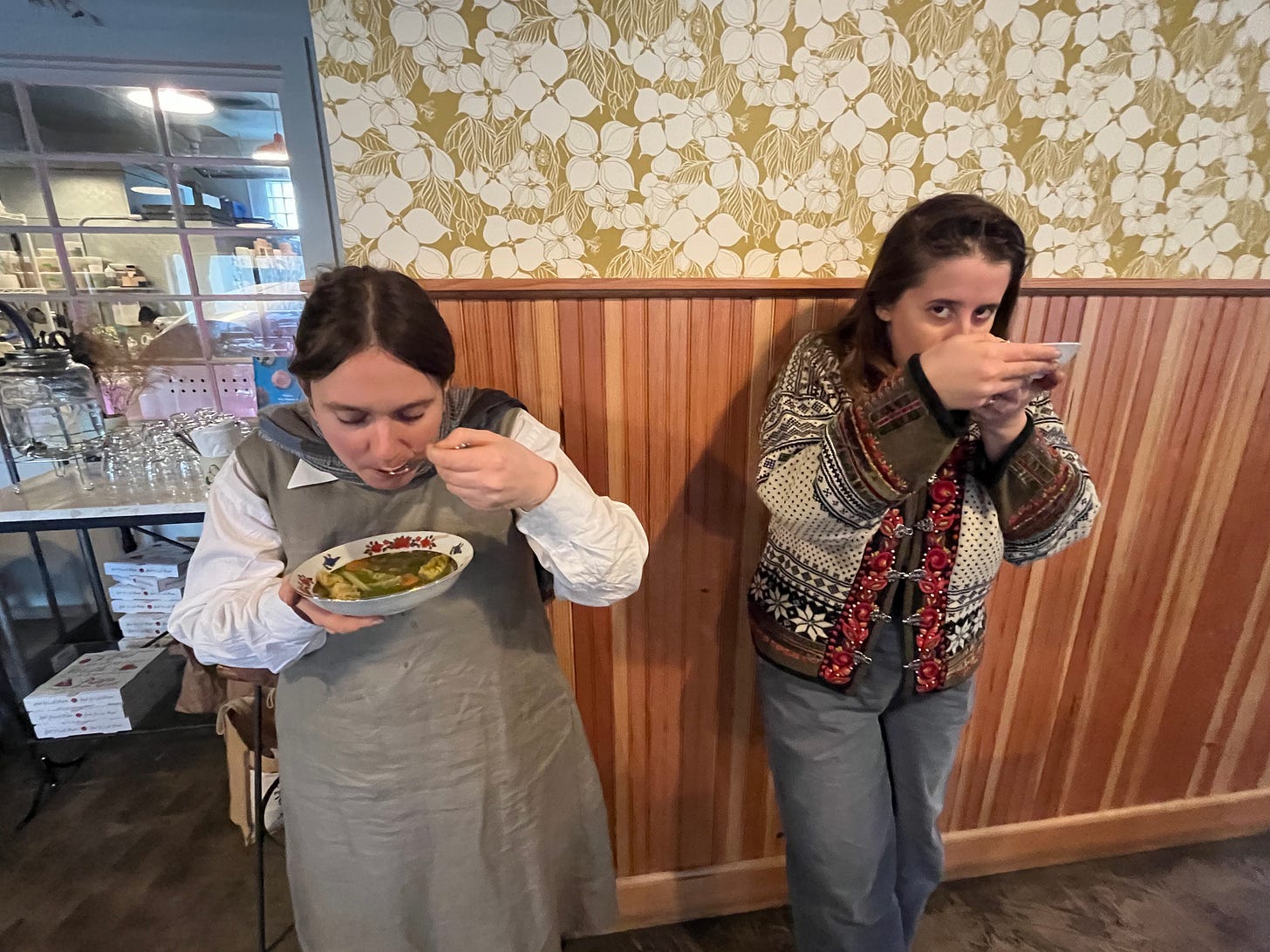
I think that last lunch may have been one of my favorite meals of the last year. what you and Jade do is so, so special. loved reading this. thanks Jo :)
Loved it!